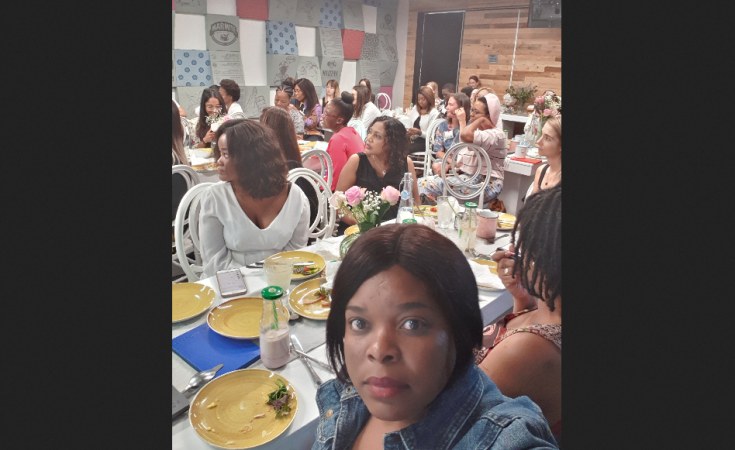Sethi Ncube attended Google South Africa's Women in Media brunch, and walked away with these thoughts...
It's International Women's Day today with a campaign theme of #BalanceforBetter, and women from across all media spheres got to sit, eat, and share the struggles they face every day on social media, in day-to-day interactions and especially in the newsroom.
Keynote speaker Azania Mosaka, a television presenter, radio host, MC and business woman spoke about the challenges she has faced in the male-dominated industry as a black woman, since her debut.
She encouraged women on how to be upfront when negotiating for the salaries that they want while stressing how important it is to consistently prove one's self to be a person of value so that when you do step into that room and make those demands you have something to prove why.
With the advent of social media, people now get jobs or platforms because of the number of likes they have on their accounts. Some view this as undermining the view of quality of what goes out there, be it in acting, be it in radio and so on.
Another thing that she suggested we, as women in media, need to bear in mind is allowing and giving space to women's voice. She stressed the importance of finding female experts on certain issues and emphasised the need to be conscious about seeking out the women voice. Even though women are huge consumers of media, their voice are never heard enough, whether as line-up, guests or experts.
She also unpacked the topic of misogyny, a topic which got given more airtime throughout the brunch, with members of the audience agreeing to how problematic it is in the media space. Most participants highlighted how they have had to fight alone when standing up against misogynists and how in the long run they got sidelined covertly, while other people choose to play it safe so as to keep their jobs.
Mosaka also encouraged us as women to pick their organisations very wisely, pick the culture that suits us, pick the ideals that it stands for as best as we can for them to be aligned to who we are, as best as possible even though it is a huge risk, a gamble and uncomfortable.
A panel consisting of seasoned journalists also unpacked the challenges that are faced by women in media, and made an example of the attack on veteran journalist Karima Brown by EFF leader Julius Malema. On the panel was Ferial Haffajee, Verashni Pillay who's with Power FM and Pearl Boshomane Tsotetsi, a lifestyle editor for Sunday Times.
They shared the same sentiments on the many issues that are faced by women in media. They highlighted how older black women in media are meaner to their younger black women colleagues, while black men sexualise them and white people don't see them. Apparently there's this idea in leadership positions that there's only room for so many and everyone is trying to get that spot and that has made people defensive of the spaces they occupy and that makes women meaner to each other because they see each other as competition or as a threat.
In closing Priscilla Chinnappa, the project manager for the South African National Editors' Forum said the culture that women are inferior needs to be confronted.
"Gender pay disparity has increased, companies are less willing to give out data meaning they are hiding something. All women think they earn less than their male counterparts. The old boys network is alive and well. The inherent patriarchal structure that is practiced in general in societies also replicates itself in media houses. Women are taking back their power to say things that they never used to say. Most people feel that men are taken more seriously for promotion. Sexism is alive and well and the black boys club has replaced the white boys club. More women are needed in boards," Chinappa said.


